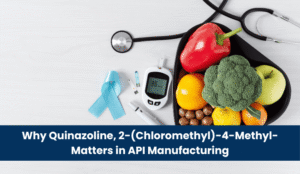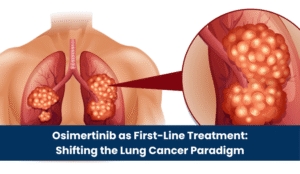Clinical trials have always been an important aspect of the healthcare sector. However, the recent surge in the pandemic and quick transformations in the pharmaceutical industry, clinical trials, and studies gained high momentum.
Everything has to pass through several clinical trials to get approved, from common pain-relieving medicines to cancer drugs. Active Pharmaceutical ingredients manufacturers demand these clinical studies to know the exact cause of the disease and the cure to stop the spread of any infection. But what exactly are these clinical trials, what are the phases of clinical trials, and what happens when it ends?
Moreover, who can participate in these clinical trials conducted by active pharmaceutical ingredient manufacturers and API manufacturers? Let’s explore answers to all such questions in our today’s blog!
What is Clinical Trial Process?
The clinical trial process is a series of operations performed to check the main cause of the disease or the effects of any medicine on living beings. API manufacturers and pharma companies demand clinical trials to validate the effectiveness of any medicine.
During a clinical trial, the researchers create a plan or protocols to test the medicine in different stages. Once that is done, the participants are given medicines or therapy according to the protocols and under the supervision of the researchers. The major requirement of clinical trials is to study the safety, effectiveness, and efficiency of the medicine according to the outcomes observed by the participants.
The clinical trials conducted by API manufacturers can take place in multiple locations, including hospitals, research centers, observatories, universities, community clinics, etc.
Read Also: 5 Things That Are Going to Change the Market of the Pharma Industry
Why Do We Need Clinical Trials?
Now that we have learned the basics about clinical trials, let’s know a bit about their necessity. Why do we need clinical trials? In other words, why can’t we launch new medicine without testing them first on humans?
Well, the answer lies inside the question! Clinical trials are important as they avoid the chances of any medical disasters. Clinical trials ensure that the medicine or therapy has no adverse effects on humans in any circumstances or with any gender, age, or climatic conditions.
Furthermore, it also adds value in medical terms to help find the exact cause of the disease, its prevention, and treatment options. Here are a few strong reasons that support clinical trials and studies.
- Finding the exact cause, treatments, and prevention of any disease.
- Exploring more suitable drugs, therapies, and treatments for curing any illness.
- Finding a way to stop the spread of any pandemic disease through lifestyle changes, drugs, or vaccines.
- Identifying the risk factors associated with any disease or its interventions.
Read Also: Future Of Pharmaceutical Industry In India- 2022
What are the Phases of Clinical Trials?
A typical clinical trial process is divided into four main stages. The first stage starts with a discovery phase, where researchers or scientists discover the cause and treatment of any specific disease. Once a cure has been found, it is tested for its effectiveness and safety. The third phase comprises testing the drug on a large number of people. The final phase is important as it shows what effects a drug can have on people if rolled out in the market.
Let’s explore each of the phases in detail!
Phase 1
The first clinical trial phase is also known as the discovery phase. That’s because, in this phase, the researchers/doctors try the drug on a small group of people (participants) to check the safety of the newly discovered drugs/therapies. In this phase, the effectiveness of the drug is not majorly tested, as the main purpose is to check whether the drug/therapy is safe for humans or not!
Phase 2
The second phase of clinical trials is focused not just on the security but also on the drug’s effectiveness. The volunteers (participants) of the clinical trial are given medicine/therapies according to the protocol.
Since the main concern of this phase is to test the security and effectiveness of the discovered drug, it can last from a few weeks to months. Moreover, this phase is divided into two groups; the first one receives the new drug, while the second group is given the existing treatment (placebo). All this is kept secret from the volunteers.
Phase 3
Once the researchers/doctors experience a positive effect of the new drug on volunteers, it is passed to phase three, which is the largest phase in terms of size and time. The new medicine/therapy is tested on hundreds of randomly selected patients.
The FDA then checks the effects of these drugs on those patients and prepares a report. The data collected by the FDA and the data from phase two are then analyzed to check the new drug’s effectiveness and side effects on treating the disease. Once the FDA passes the vaccine/drug, the pharma companies can request the authorities to market those approved drugs.
Phase 4
That is the last phase of clinical trials in which the companies approves the drug and market it amongst their target audience. In this phase, the companies look for the long-term effects of their drug/therapies on the patients. And that’s why this phase can last up to a few years!
Who Conducts Clinical Studies?
Clinical studies are majorly funded by API manufacturers and active pharmaceutical ingredient manufacturers to roll out new drugs and test their effectiveness. Clinical trials can be conducted in hospitals, universities, or laboratories.
A typical clinical trial team consists of a supervisor or a principal investigator, followed by some doctors, nurses, researchers, health nutritionists, and social workers(if needed).
Read Also: How Pharma PLI Scheme Can Change the Dependency of API Import
Who Can All Participate in a Clinical Trial?
Since clinical trial processes are a bit complex and made for studying the effects of certain medications, there are some important protocols regarding the people who can participate in these trials. For instance, some studies or trials require people who already have illnesses for which the medicine is to be made. The other trials may require participants who are healthy and do not have any symptoms.
Hence, you will be required to follow the protocols and criteria to become a participant in any clinical trials. The conditions that limit the people from participating are called exclusion criteria, whereas the ones that include the participants are known as inclusion criteria.
How are Participants Protected During Clinical Trials?
API manufacturers usually conduct clinical trials to test the effect of new medicines and therapies. Hence, the concerned persons are selected based on the requirements and protocols. Once the participants are chosen, they are asked to sign a consent form.
That consent form specifies the terms and conditions of the trial process. Besides that, the participants are also given training, communication sessions, and learning materials to understand more about the clinical trial process.
All the information of the candidates is secured using an agreement. Besides, the trial company ensures that their experiments are not made public using other contracts.
Conclusion
Clinical trials are important for API manufacturers and active pharmaceutical ingredient manufacturers. These trials are conducted to discover other drugs and therapies for new/existing diseases and to check the effectiveness of the discovered drugs.
The clinical trials are supervised by a principal investigator followed by doctors, scientists, researchers, social workers, etc. Companies conducting clinical trials select the participants based on some protocols. These companies then agree with the participants and work on various sessions/ therapies to prepare them for clinical trials. All in all, if you want to maximize the effects of your medicine and ensure a safe and effective drug/therapy for people, then clinical trials are a must!






